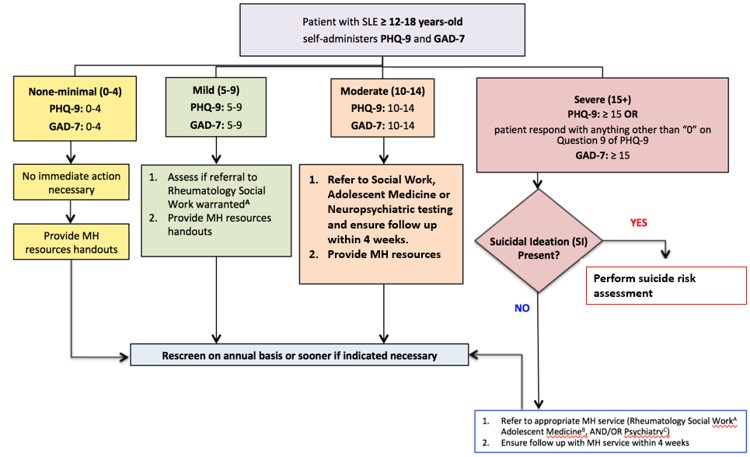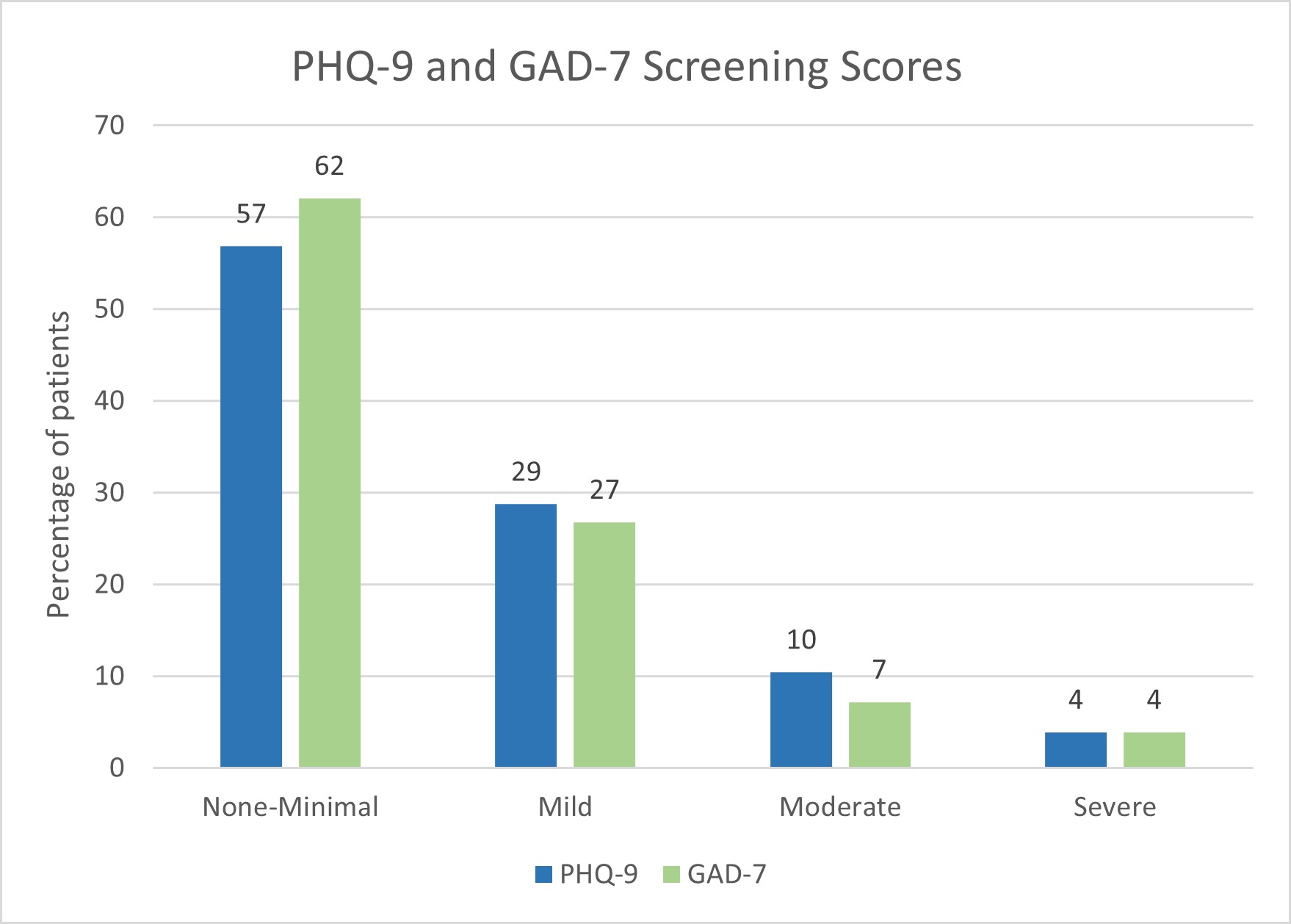Session Information
Date: Monday, November 13, 2023
Title: (1221–1255) Pediatric Rheumatology – Clinical Poster II: Connective Tissue Disease
Session Type: Poster Session B
Session Time: 9:00AM-11:00AM
Background/Purpose: Common barriers to conducting mental health (MH) screening in pediatric clinics include provider uncertainty with follow-up after screening, and concern with increasing burden of referrals to MH services. However, regular MH screens help identify patients who need MH care and engage them in follow-up. In the childhood-onset systemic lupus erythematosus (cSLE) clinic at The Hospital for Sick Children, a new MH screening and referral system was recently implemented. This project aims to describe MH screening results and assess patient satisfaction with their MH care in the cSLE clinic.
Methods: Patients followed in the cSLE clinic aged ≥12 received a MH screen with validated assessment tools for depression (PHQ-9) and anxiety (GAD-7). Referral to MH services (psychology, social work, psychiatry and adolescent medicine) was based on symptom severity (Fig.1) and discussion with the patient. All patients who completed the MH screen received a handout with free online MH resources. An anonymous survey to assess patient satisfaction with their MH care was sent to patients ≥8 weeks after their initial screen. Repeat screens were performed for patients after 6 months. 66 surveys were distributed to 100 eligible patients. Data were collected from January 2022 to May 2023.
Results: 153 MH screens were completed, 37 patients were screened twice and 2 patients were screened 3 times. Most patients (60%) had minimal or no symptoms of depression and anxiety (Fig. 2). About a third of patients had mild symptoms, 14% of patients had moderate to severe symptoms and 8 patients (5%) reported suicidal ideation (primarily passive) (Fig.2). 12 patients (11%) were referred to adolescent medicine, 4 (4%) to social work and 1 (1%) to psychiatry. 28 satisfaction surveys were completed for a response rate of 42%. While 21% of patients felt that the MH screen brought up unwanted feelings, 100% found the MH screen to be a positive experience. 71% of patients were interested in follow-up or resources after their screen. 8 (28%) patients who completed the survey were referred to MH providers and were all satisfied with the services received. 5 patients had their appointment >4 weeks after referral, 2 patients had an appointment < 4 weeks after their referral and 1 patient had their appointment the same day as cSLE clinic. 2 patients seen >4 weeks after the referral felt that time to their MH appointment was too long. Suggested improvements to the MH process included making the physical space more welcoming and private, and asking about MH at every clinic visit.
Conclusion: While most patients had mild or no symptoms of depression and anxiety, MH screens detected 14% of patients with moderate to severe symptoms, and 16% were referred to MH services. MH screening was a positive experience and receiving MH resources was important to patients. Patients’ MH concerns were adequately addressed with MH services, although time to follow-up could be improved. Overall, the new MH screening process has identified important concerns for patients with cSLE and initiated appropriate referral to MH services with high rates of patient satisfaction. We hope to further improve this process based on patient feedback by changing the physical space and increasing the frequency of screens.
To cite this abstract in AMA style:
Chen A, El Tal T, Jeyanathan A, Convery H, Wong S, Hiraki L, Levy D, Knight A. Mental Health Screening Follow-Up in the Childhood-Onset Systemic Lupus Clinic [abstract]. Arthritis Rheumatol. 2023; 75 (suppl 9). https://acrabstracts.org/abstract/mental-health-screening-follow-up-in-the-childhood-onset-systemic-lupus-clinic/. Accessed .« Back to ACR Convergence 2023
ACR Meeting Abstracts - https://acrabstracts.org/abstract/mental-health-screening-follow-up-in-the-childhood-onset-systemic-lupus-clinic/


